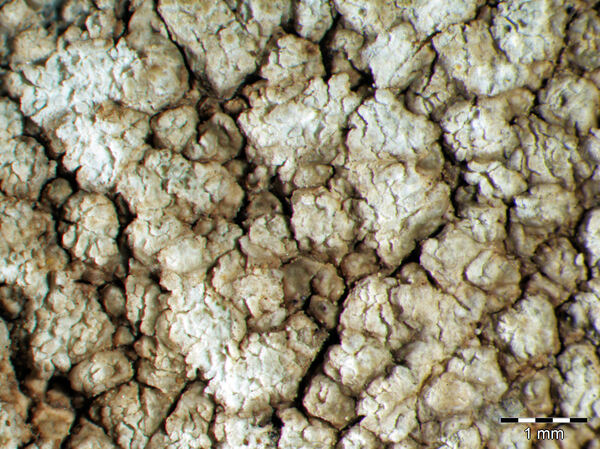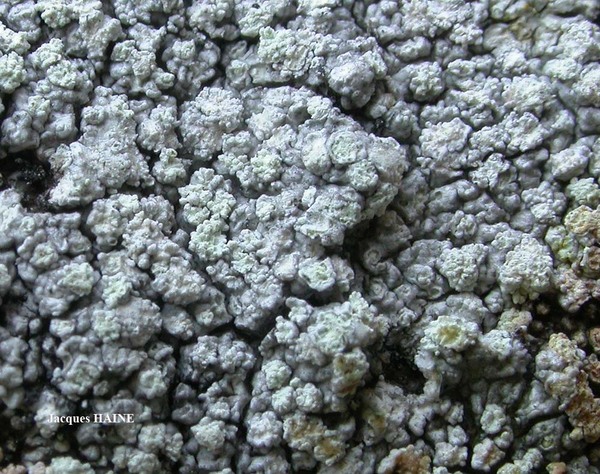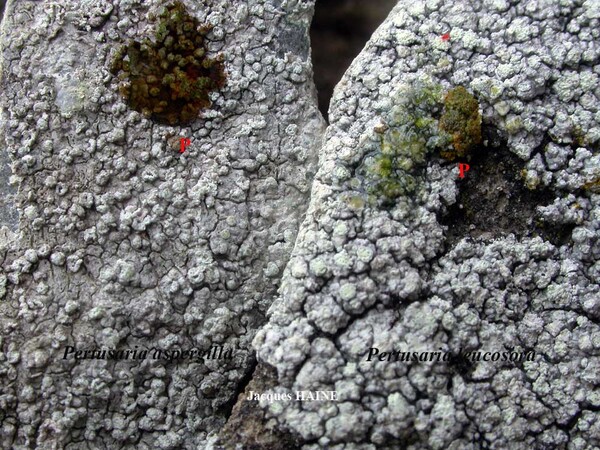Lepra leucosora (Nyl.) Hafellner
in Hafellner & Türk, Stapfia, 104: 171, 2016. Basionym: Pertusaria leucosora Nyl. - Flora, 60: 223, 1877.
Synonyms: Pertusaria leucosora Nyl.
Distribution: N - TAA, Piem (Craighero 2010), VA, Lig. C - Tosc (Craighero 2010, Ravera & al. 2016), Marc (Craighero 2010), Laz (Craighero 2010), Abr (Craighero 2010), Sar (Monte 1993, Nöske 2000, Craighero 2010, Brackel & Berger 2019). S - Bas (Brackel & Puntillo 2023), Cal (TSB 6808).
Description: Thallus crustose, episubstratic, thick, forming up to 10 cm wide patches, markedly areolate-warted, the warts up to 1.5 mm across, pale or dark grey, sometimes delimited by a white, zoned margin. Soralia 0.3-1 mm across, at first punctiform, then maculiform and more or less orbicular, long remaining discrete, finally sometimes confluent, convex, whitish, with coarsely granular soredia; sparse cylindrical isidia-like outgrowths sometimes also present. Medulla white, I-. Apothecia and pycnidia unknown. Photobiont chlorococcoid. Spot tests: medulla and soredia K+ yellow turning yellow-brown, C-, KC-, P+ yellow turning rust-red to bright red, rarely P+ orange, UV-; cortex K-, P+ reddish. Chemistry: protocetraric acid (major), succinprotocetraric acid (major). Note: on siliceous rocks in upland areas. According to Roux & coll. (2014) this species is very closely related to, but distinct from L. aspergilla.
Growth form: Crustose
Substrata: rocks
Photobiont: green algae other than Trentepohlia
Reproductive strategy: mainly asexual, by soredia, or soredia-like structures (e.g. blastidia)
Commonnes-rarity: (info)
Alpine belt: very rare
Subalpine belt: rare
Oromediterranean belt: absent
Montane belt: rather rare
Submediterranean belt: absent
Padanian area: absent
Humid submediterranean belt: absent
Humid mediterranean belt: absent
Dry mediterranean belt: absent
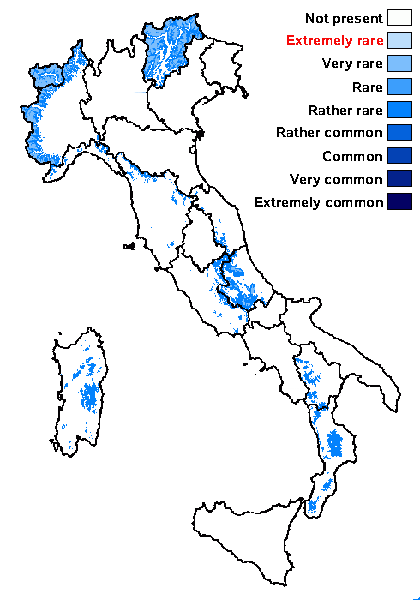
Predictive model
Herbarium samples
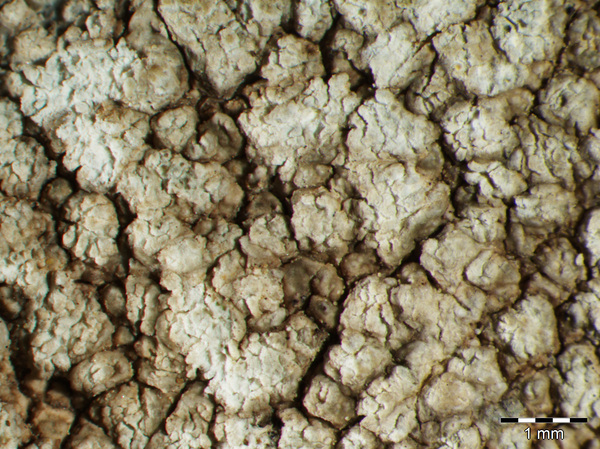
Harrie Sipman
Greece
Source: https://archive.bgbm.org/digitalimages/Aegean/Pertusaria/Per_leucosora59074.jpg
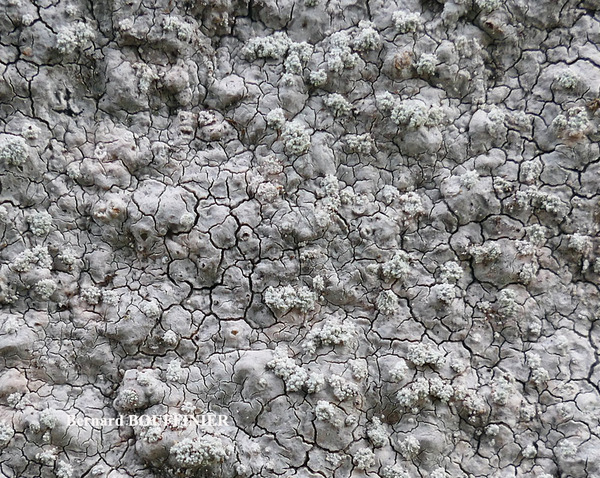
Bernard Bouffinnier - Source: http://www.lichensmaritimes.org/index.php?task=fiche&lichen=101&lang=en
France, Loqueffret
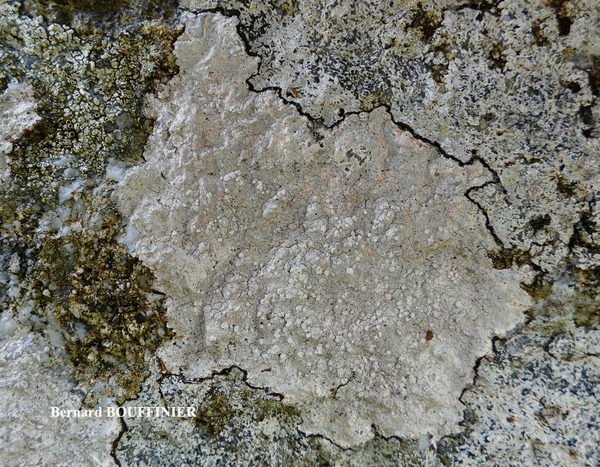
Bernard Bouffinnier - Source: http://www.lichensmaritimes.org/index.php?task=fiche&lichen=101&lang=en
France, Loqueffret
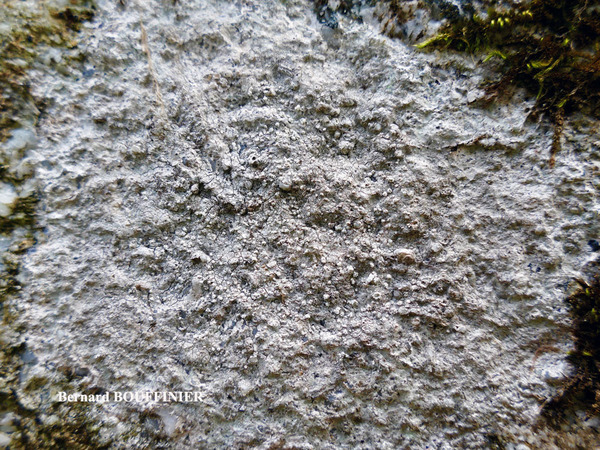
Bernard Bouffinnier - Source: http://www.lichensmaritimes.org/index.php?task=fiche&lichen=101&lang=en
France, Loqueffret
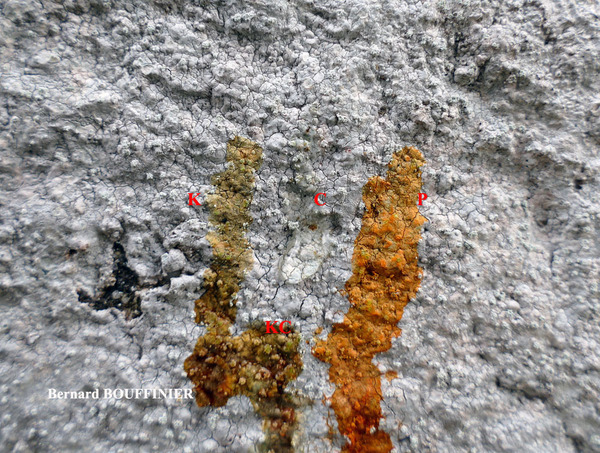
Bernard Bouffinnier - Source: http://www.lichensmaritimes.org/index.php?task=fiche&lichen=101&lang=en
France, Loqueffret
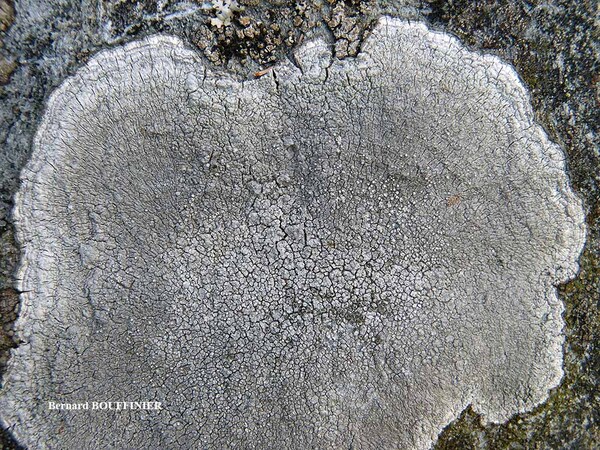
Bernard Bouffinnier - Source: http://www.lichensmaritimes.org/index.php?task=fiche&lichen=101&lang=en
France, Roc'h an Daol
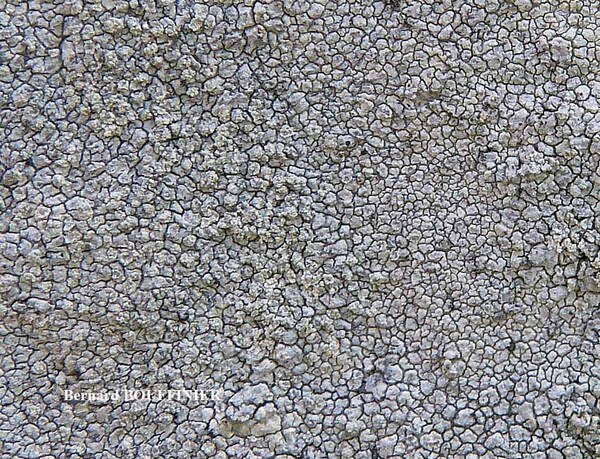
Bernard Bouffinnier - Source: http://www.lichensmaritimes.org/index.php?task=fiche&lichen=101&lang=en
France, Roc'h an Daol
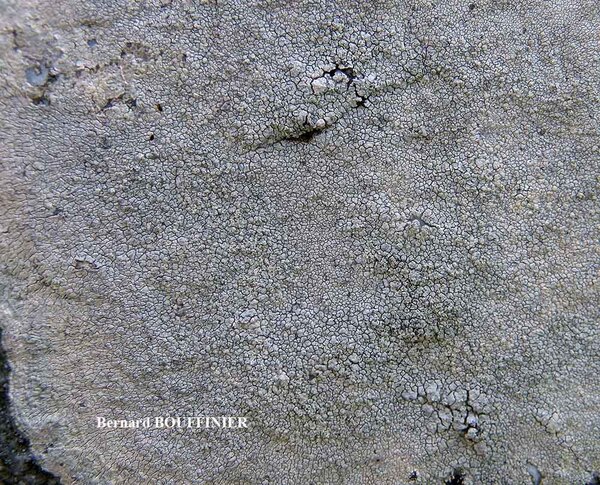
Bernard Bouffinnier - Source: http://www.lichensmaritimes.org/index.php?task=fiche&lichen=101&lang=en
France, Roc'h an Daol
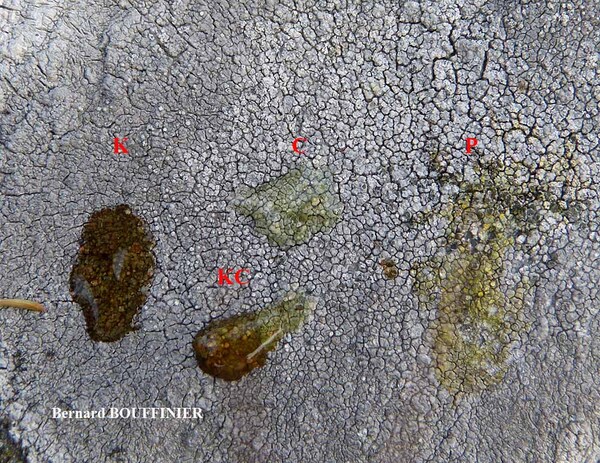
Bernard Bouffinnier - Source: http://www.lichensmaritimes.org/index.php?task=fiche&lichen=101&lang=en
France, Roc'h an Daol
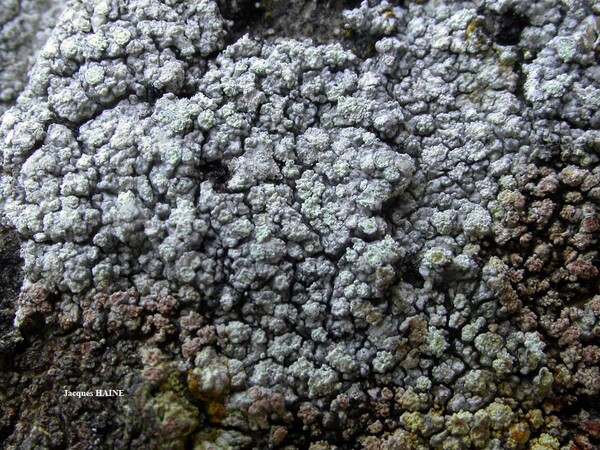
Jacques Haine - Source: http://www.lichensmaritimes.org/index.php?task=fiche&lichen=101&lang=en
France, Givet
Growth form: Crustose
Substrata: rocks
Photobiont: green algae other than Trentepohlia
Reproductive strategy: mainly asexual, by soredia, or soredia-like structures (e.g. blastidia)
Commonnes-rarity: (info)
Alpine belt: very rare
Subalpine belt: rare
Oromediterranean belt: absent
Montane belt: rather rare
Submediterranean belt: absent
Padanian area: absent
Humid submediterranean belt: absent
Humid mediterranean belt: absent
Dry mediterranean belt: absent

Predictive model
| Herbarium samples |

Harrie Sipman
Greece
Source: https://archive.bgbm.org/digitalimages/Aegean/Pertusaria/Per_leucosora59074.jpg

Bernard Bouffinnier - Source: http://www.lichensmaritimes.org/index.php?task=fiche&lichen=101&lang=en
France, Loqueffret

Bernard Bouffinnier - Source: http://www.lichensmaritimes.org/index.php?task=fiche&lichen=101&lang=en
France, Loqueffret

Bernard Bouffinnier - Source: http://www.lichensmaritimes.org/index.php?task=fiche&lichen=101&lang=en
France, Loqueffret

Bernard Bouffinnier - Source: http://www.lichensmaritimes.org/index.php?task=fiche&lichen=101&lang=en
France, Loqueffret

Bernard Bouffinnier - Source: http://www.lichensmaritimes.org/index.php?task=fiche&lichen=101&lang=en
France, Roc'h an Daol

Bernard Bouffinnier - Source: http://www.lichensmaritimes.org/index.php?task=fiche&lichen=101&lang=en
France, Roc'h an Daol

Bernard Bouffinnier - Source: http://www.lichensmaritimes.org/index.php?task=fiche&lichen=101&lang=en
France, Roc'h an Daol

Bernard Bouffinnier - Source: http://www.lichensmaritimes.org/index.php?task=fiche&lichen=101&lang=en
France, Roc'h an Daol

 Index Fungorum
Index Fungorum
 GBIF
GBIF
